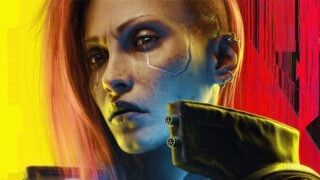Microsoft’s Quake 2 AI experiment sparks negative reactions
The Xbox firm has launched a version of Quake powered by generative AI

Microsoft has launched a version of Quake 2 powered entirely by generative AI, which has been received negatively by many social media users.
The Quake 2 tech demo is powered by Microsoft’s new video game generative AI model, Muse, which it says can generate “game visuals, controller actions, or both.”
Microsoft has launched the Quake 2 demo, which can be played via a web browser on Microsoft’s website, to show off the capabilities of Muse, but insisted that it does “not intend for this to fully replicate the actual experience of playing the original Quake 2”.
Microsoft adds that “whilst we feel it is incredibly fun to play a simulated version of the game inside the model, there are of course limitations and shortcomings of our current approach”.
It notes that interactions with enemies need to be improved, since they will often appear fuzzy, and that because its current context length is 0.9 seconds of gameplay (9 frames at 10fps), it will forget about objects that go out of view for longer than this.
While there is some acknowledgement of the technical achievement behind the demo, many social media users have reacted negatively, with a significant number of the replies to an X post by Game Awards producer Geoff Keighley criticising its use of generative AI.

“We made a program that vaguely and inaccurately imagines what it might look like if you were playing quake 2 right now,” reads one reply. “It requires all the same equipment you could instead use to actually play quake 2, but requires a billion times more electricity.”
“This is absolutely fucking disgusting and spits on the work of every developer everywhere,” reads another, more strongly worded reply.
Microsoft CEO Satya Nadella has said it’s planning to have a catalog of video games utilize its new generative AI mode. Commenting on Muse in February, Nadella compared it to the ‘wow’ moment he said he felt when he first saw other generative AI models such as ChatGPT.
Like in most creative industries, Generative AI has become a hot topic in video games, with many voicing concerns about generative AI leading to job losses and widespread plagiarism.
Take-Two Interactive CEO Strauss Zelnick recently said that not only does he think AI won’t lead to job losses, he believes it could lead to increased employment. He also said that he couldn’t think of any new guardrails that might be required to protect developers.
Speaking to VGC, Split Fiction and It Takes Two director Josef Fares said he thinks developers should work with AI rather than push against it and called it “both scary and very exciting.”














